Princeton UNICEF
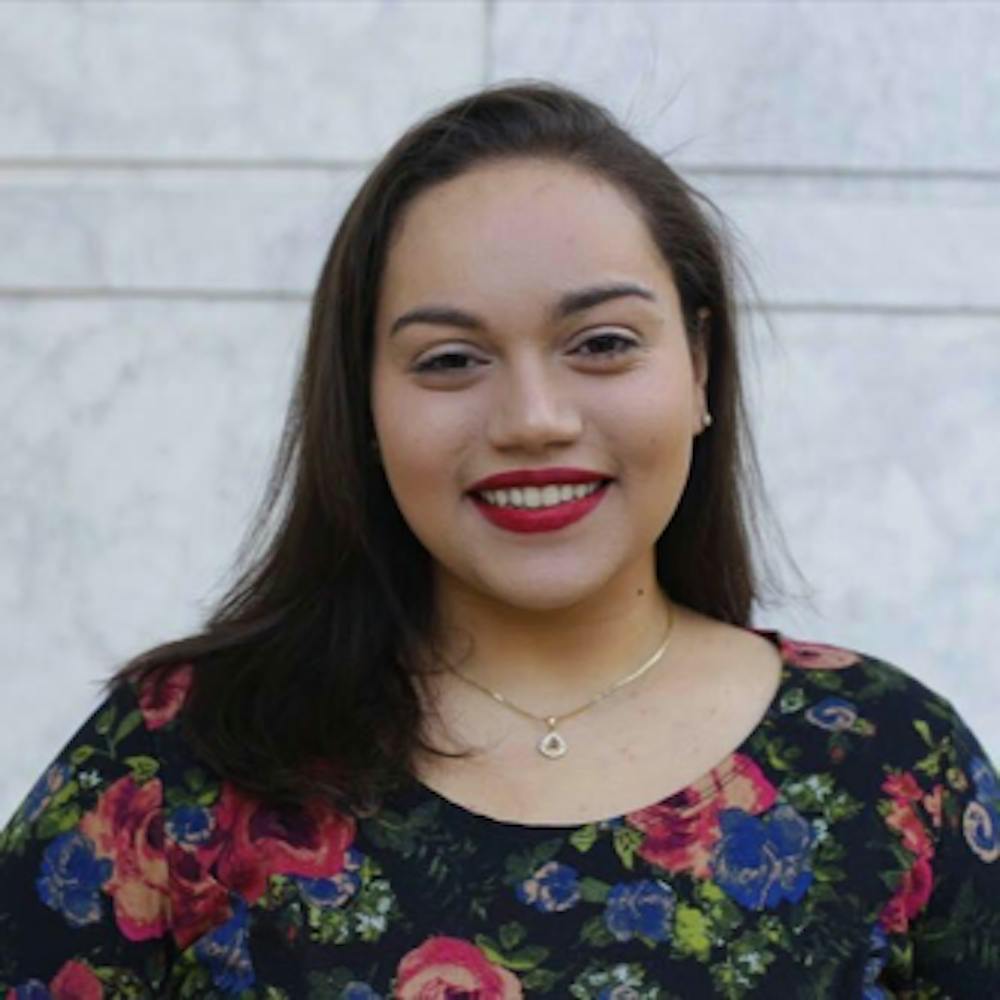
“Kids don’t have the same autonomy that adults do. A homeless adult lives a different lifestyle than a homeless child would.” Enver Ramadani ‘21
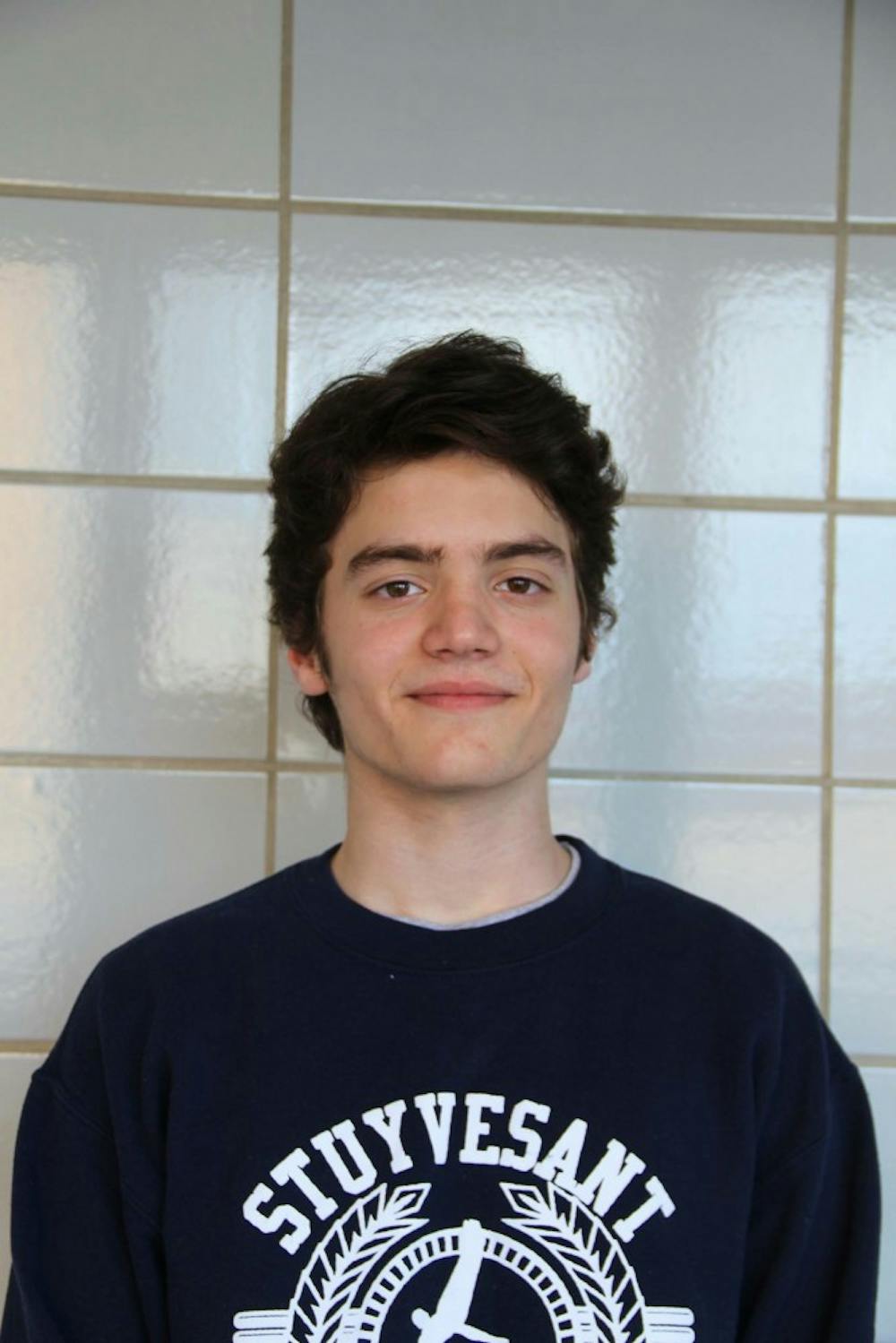


Princeton UNICEF strives to educate people on current events that affect women and children. The chapter was started when Enver Ramadani ’21 took a trip to visit the United Nations for his writing seminar on contemporary slavery. The UNICEF ambassador that he met during the trip let him know that surprisingly, the University did not have a UNICEF chapter. After his trip, Ramadani talked to his writing seminar professor, Dannelle Cordero, who became the club’s faculty advisor once they had organized the chapter and made it official through the Pace Center. The Princeton chapter plans to host monthly meetings on topics such as water quality, human trafficking, and AIDS. Ramadani and Amy Abdalla ’21 co-founded Princeton UNICEF in hopes of getting the student body more engaged with issues that may not be discussed widely between groups on campus. Princeton UNICEF mainly focuses on issues affecting children and strives to raise awareness and increase participation in helping combat the issues at hand. “I think it’s important to make the division between children and adults,” Ramadani said. “A lot of these children don’t have people to take care of them.” The core missions of Princeton UNICEF are to host events such as trick-or-treat to raise money for UNICEF and to educate the University community about the issues that are happening in this world. “This is what UNICEF does to combat trafficking, but this is what YOU can do too,” said Ramadani.
Woke Wednesdays
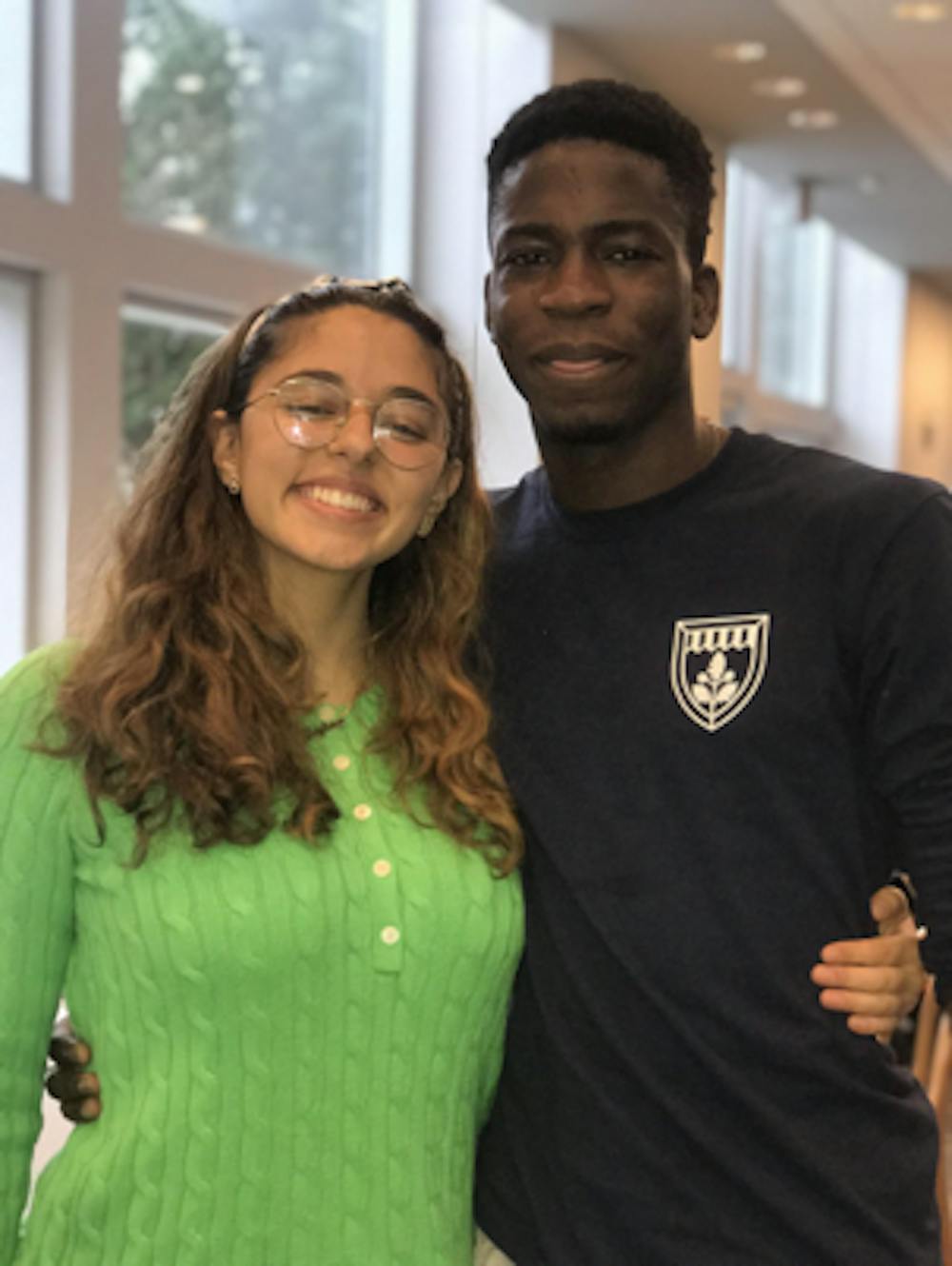
Woke Wednesdays is “attainable, entertainable, and unfiltered.” Tobi Ayeni ’21.
Woke Wednesdays started on campus this past year with the goal of engaging students in conversation about specific topics. The organization is currently in the process of producing a video centered around the Muslim community on campus. Previous videos included topics such as CPS unfiltered and how stressful the University can be. Woke Wednesdays is based off a podcast, but due to administration changes, Tobi Ayeni ’21 and Aydan Celik ’21 decided to take it over and create Woke Wednesdays into a medium that is more attractive to students and our generation. After their first YouTube video in April, Woke Wednesdays has gained a big following. They now boast 2,000–3,000 views per video compared to the 130 people who used to listen to the podcast. With this new audience, Woke Wednesdays hopes to spark conversations around campus “in a way that basically makes students woke,” according to Ayeni. Ayeni said he views Woke Wednesdays is a way to shine light on the diversity of opinions within the University community. Both Ayeni and Celik said they take pride in the diverse group of people on the board of Woke Wednesdays, which is made up of students who are first-generation, low-income, minorities, and even athletes. “Woke Wednesday’s aims to create an original and honest narrative of student life at one of the most prestigious and stressful schools in America. Princeton is an enigma and we’re trying to solve that enigma,” Celik said. Through the videos that they will continue to make this year, Woke Wednesdays hopes to open conversations on topics that are generally undiscussed in the Princeton community and hope to shed light on many different opinions: “It’s in the name. We’re here to make Princeton more woke. How we define woke is the attitude of promoting dialogue and discussion around social, political, and cultural issues on campus. As well as providing a platform for and uplifting marginalized voices on campus,” Ayeni said.
Club Water Polo
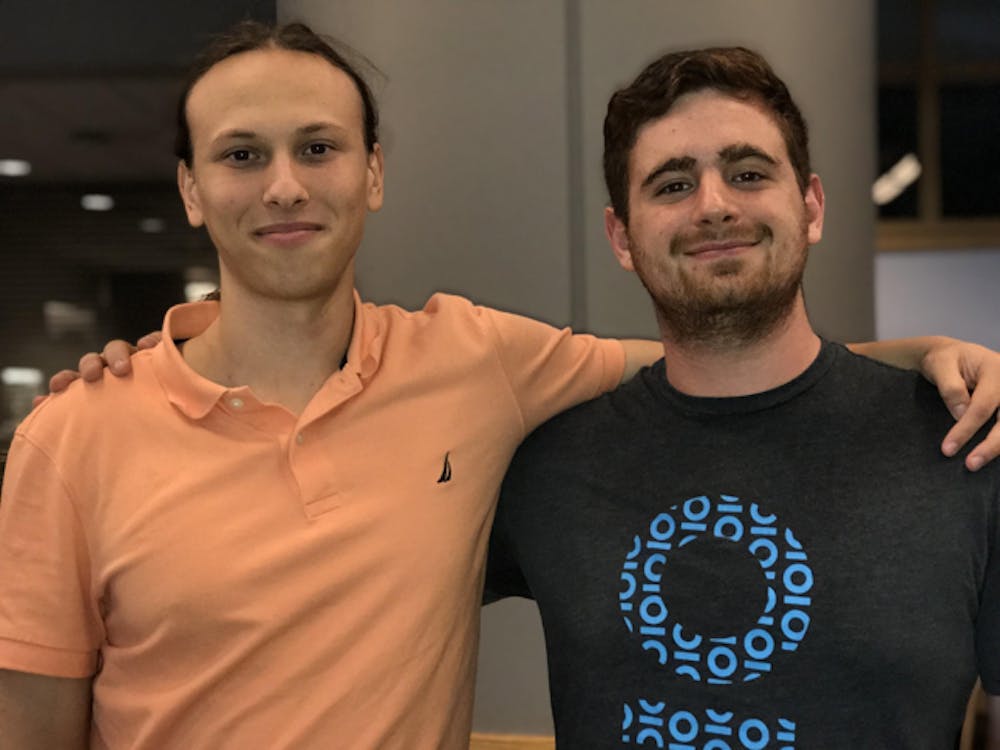
“When other clubs say that there is no experience required, for us, it’s actually no experience required. We’re expecting nothing going in and it’ll just be fun for everyone to learn together.” Misha Tseitliani ’21
Andrew Damian ’20 and Misha Tseitliani ’21 both shared a love for water polo in high school. “[Water polo] is the first team sport I have ever done. I remember in high school just having a really strong camaraderie with all the other teammates. It provided an outlet that other team sports didn’t,” said Damian. But when they both came to Princeton, they were surprised to realize that the only option for water polo was to go varsity or to stop playing all together. “I don’t want to commit myself to varsity, but I still really want to play water polo,” Tseitliani said. Tseitliani’s family had been playing water polo for 5–6 generations, and he was set on making water polo a part of his University experience. Prior to starting club water polo, Tseitliani learned that this was the fourth time that people had attempted to start the club. “It’s been a very complicated process. Club sport is very strict because they don’t give you any money from the first year of club. We had to do a lot of fundraising,” Tseitliani said. But despite all the hardships of getting started, Tseitliani and Damian are excited to begin coaching the new members of the club. “Most of the roster is going to be new. Most of the time spent this year is going to be spent teaching. It’s going to be really fun to be coaching and playing,” Damian said. The goal of the club is to teach people the tricks to winning water polo competitions and hopefully competing in the future. “It’s more about being quick than being fast,” Damian explained. “It requires a lot of physical strength and gets you into shape really quickly. But it’s also a mental game because you can’t move fast in the water so it slows all the motion down,” Tseitliani added. “The goal is to introduce people to a sport that is fun, challenging, and rewarding in a way that helps them build a community around something that I’m passionate about and has served me well.”
KoKo Pops
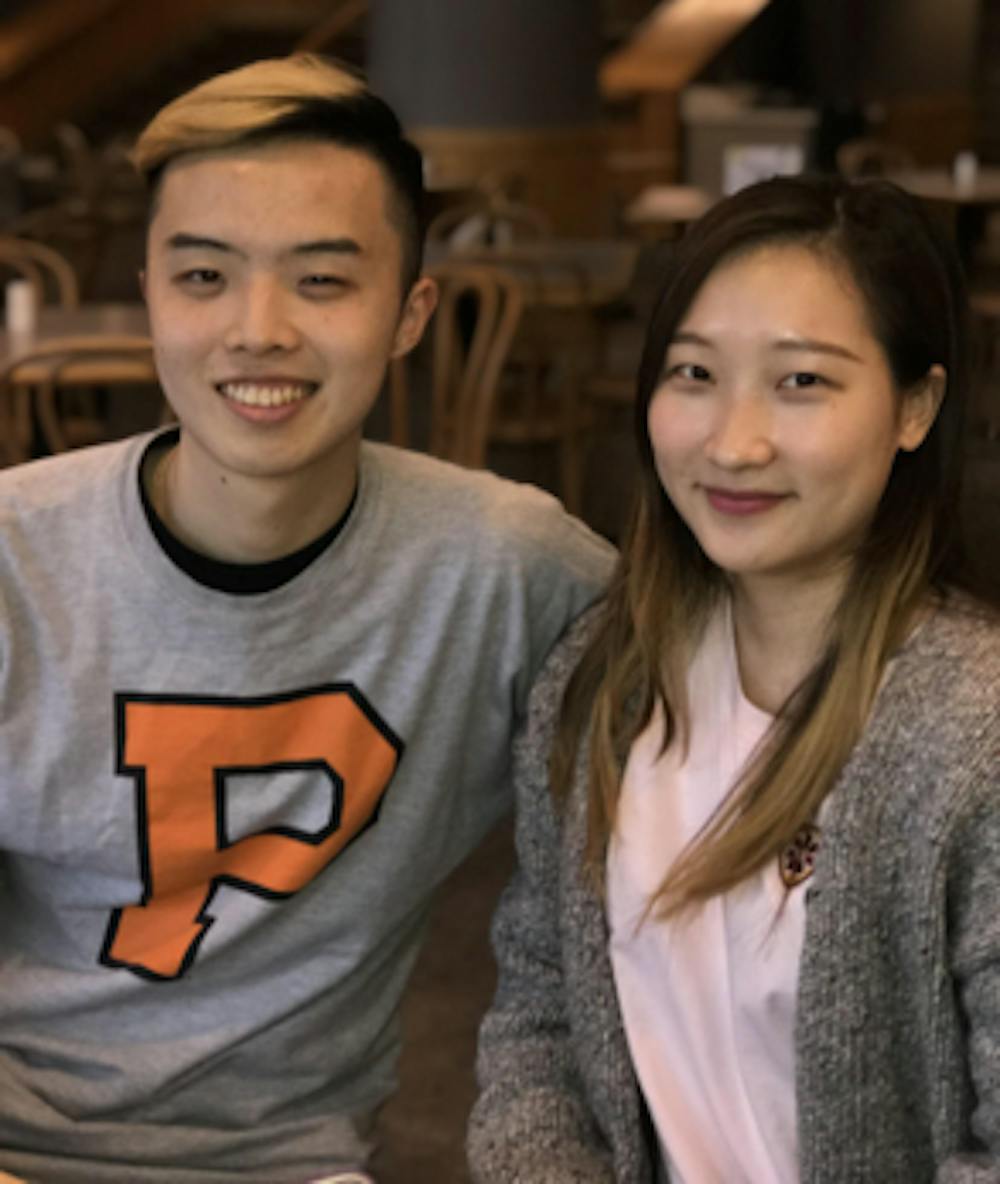
“As you encourage [people to dance] you see them grow more confident in themselves on stage. And they begin to teach dances and take leadership roles. This growth allows people to step out of their comfort zone and makes it a lot more meaningful.” Haeley Ahn ’21
KoKo Pops is a new Korean pop dance group on campus. The co-founders, Haeley Ahn ’21 and Martin Lee ’21, said they were surprised to learn that Princeton had no organizations on campus that specialized in K-pop choreography, so they decided to start their own. “What drew me to K-pop is the songs, what [the performers are] wearing, the aesthetics, and the dance videos. I wanted a way to show my passion for that and dance was the medium that I chose. Dance is something that, no matter how much experience you have, if you practice enough and work at it, it’s something that anyone can do. It’s a very accessible and fun way for people to show their love for K-pop,” Lee said. Ahn shared the same love for dance and recalled her interest in K-pop as a high schooler: “I was always into K-pop and K-pop choreography. I remember as a high schooler I would see a lot of universities performing K-pop choreography [on Youtube].” KoKo Pops performed during Tiger Night this year. “Our performances are met with very unexpected hype. People hype you up and cheer. That’s a really special bonding experience of a performance,” said Ahn. The dance group had about 80 people sign up out of interest after Tiger Night. The group has a spring semester production planned as well as casual events and workshops for their members. “KoKo Pops, for me, is an inclusive family that is always striving to improve ourselves, learn from each other and most importantly have fun,” Martin said. “Coming from Korea, I feel like KoKo Pops is also a great way to combat negative stereotypes about K-pop. A lot of people use the term “koreaboo” (a derogatory term that means that you are “obsessed” about Korea) to describe fans of K-pop. I hope that the community can see that K-pop brings a lot of diverse people together and allows them to accept themselves and interact with the audience. It’s more than just being obsessed with a culture. It’s a great means of cultural communication and understanding,” Ahn summed up. International Princeton
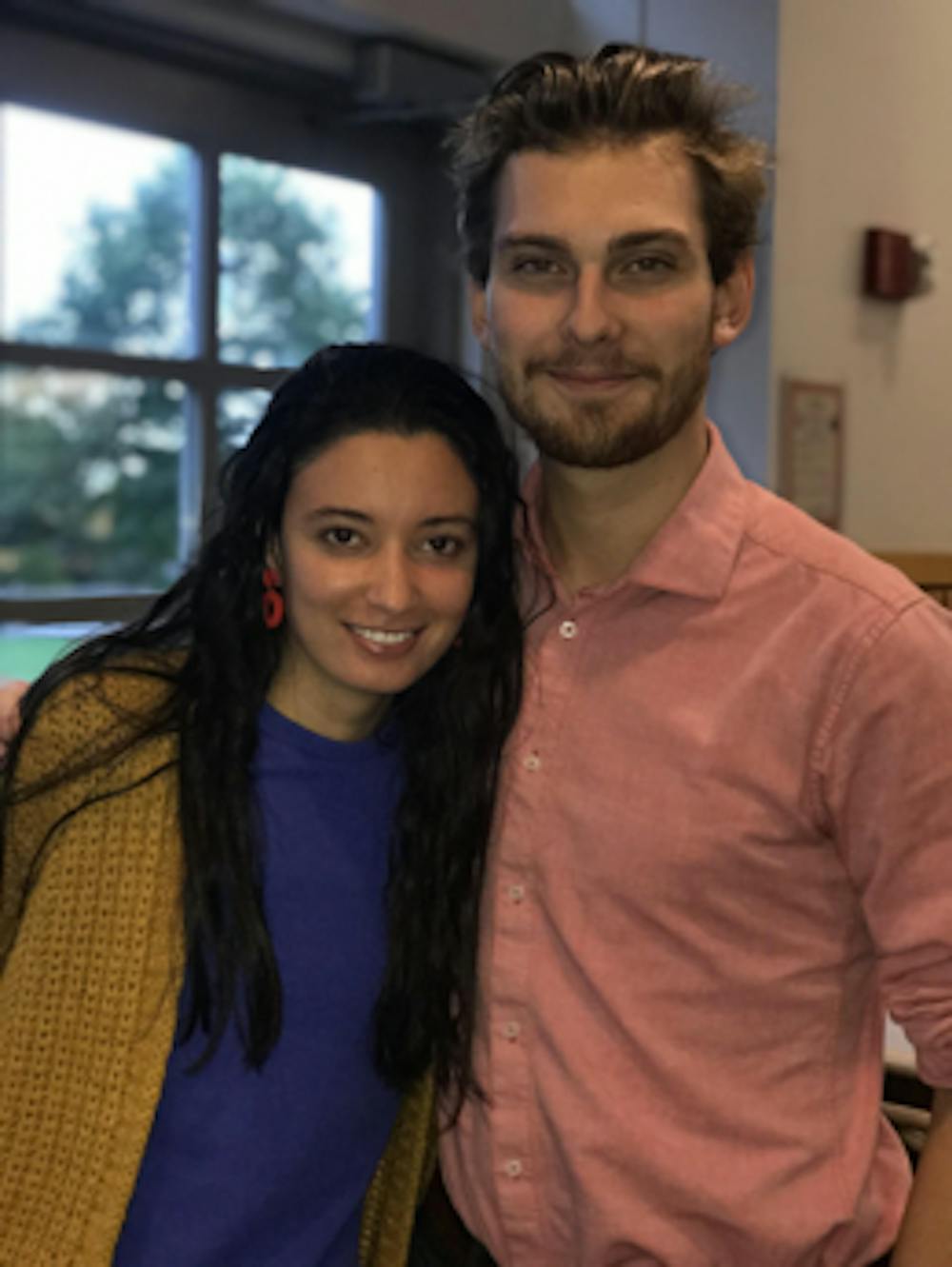
“All international students, once in a while, look into a distance because we want to go back home.” Sten Sjoberg ’21
Before International Princeton established itself as a group, many international students on campus did not have a voice to advocate for them or their space on campus. Radia Soulmani ’20 and Sten Sjoberg ’21 created International Princeton with the goal of obtaining resources and advocating for the international community on campus. “We are 12.5 percent of campus but sometimes it feels like we don’t exist,” Sjoberg said. “Our biggest goal right now is to get an international space on campus. Maybe a room in Frist Campus Center where an international student can just be an international.” One of the projects that International Princeton is involved in is obtaining a work permit for international students that does not take 3–5 months to complete. “That’s a big issue because having and getting an internship is already stressful and the work permit is more stressful,” Soulmani said. The group plans to have the University establish the Curricular Practical Training work permit for internships instead of the Optional Practical Training work permit. This will allow the University’s international students to shorten their applications and wait time for a work permit. Soulmani summarized the group’s efforts: “The International Center is more administrative. International Princeton is a way for students to advocate for students. It’s a comfortable space for international students to handle things related to the school.” Sjoberg agreed with that statement and said he believes that International Princeton will be the uniting force of international students on campus. “I think that International Princeton is the beginning of a cohesive international experience at princeton,” he said. “We are all slightly out of our depth ’cause we’re in America and not back home. IP, for me, is uniting the international experience at Princeton.”
Irish Dance Company
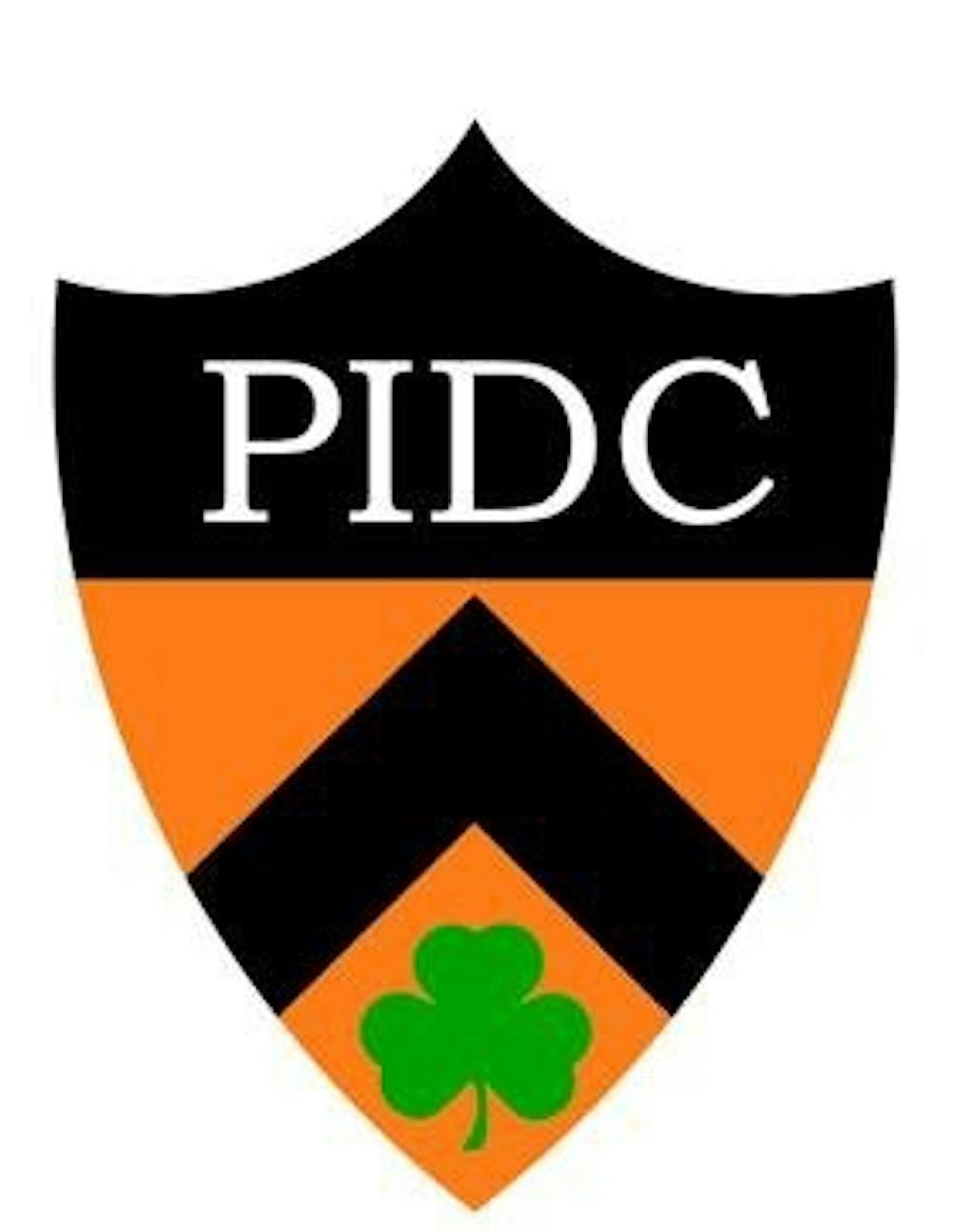
“I’m very excited to perform with a bunch of other people.” Danielle Newton ’20
Have you ever wanted your own really cool pair of hard shoes? The new Irish Dance Company teaches students two types of dance: Irish tap dancing and Irish ballet. In an Arch Stomp last spring, the Irish Dance Company performed in between the a cappella group sets under Blair Arch. “I really like performing. I’m very surprised to see what it looks like. I love seeing people’s reactions to Irish dance for the first time,” said Danielle Newton ’20, who founded the Irish Dance Company. Newton has been in Irish dance for 10 years — almost her entire life. She was inspired to start Irish dance after her two sisters joined an Irish dance group. After she came to the University, she realized that all the Irish dance studios were far from campus and that many students had never been introduced to Irish dancing. “It’s a lot easier to learn than people think. A lot of people in the club last year had never danced before. We spent two months doing basics and when I announced [at the Arch Stomp] that the group had never danced before, the audience was really surprised,” Newton said. The Irish Dance Company now holds two rehearsals each week and encourages participation in Irish culture and dance to people who have not yet been exposed to the culture.
Princeton Blockchain Club
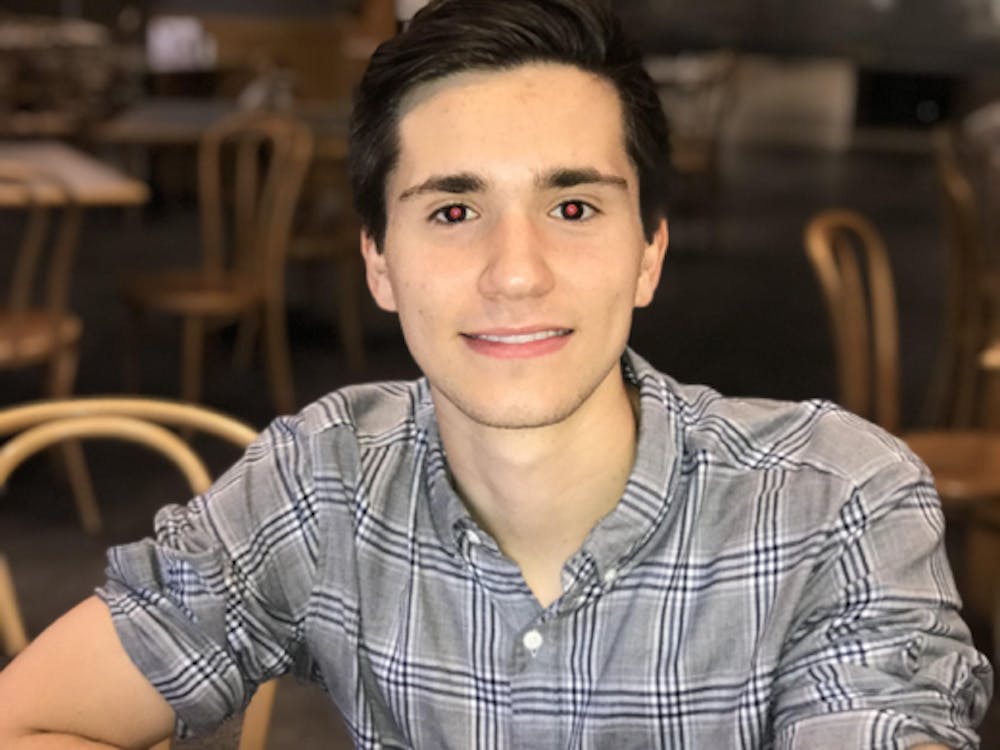
“What makes it really cool is the potential for good and reducing uncredible middlemen.” Reilly Bova ’20
Blockchain has become a very popular topic on college campuses and in the media. Last year, there was a huge explosion in the cryptocurrency market, which gave popularity to the blockchain ecosystem as a whole. However, “blockchain is a lot more than just the transfer of money,” said Reilly Bova ’20, the co-founder of the Princeton Blockchain Club. “With this emerging community, there’s a ton to learn beyond the very popular financial aspect of it.” Bova expressed that as blockchain continues to be the buzzword on college campuses and in financial markets, it’s important to teach students what they can do with blockchain to make the world a better place. “We have incredible faculty who have done research and their names are known in the field. And a number of alumni in the field, like Joseph Lubin, the co-founder of Ethereum. Very few undergrads know about this,” Bova explained. In addition, the club aims to help students understand the application of blockchain. “It can cut out the middleman in transactions,” Bova said. “This becomes useful in a number of third-world countries where the government and the banks are not very reliable and transactions can be made more easily between the buyer and seller.” The club strives to teach students what could become a huge part of their lifestyle once they leave campus.
Princeton Pops
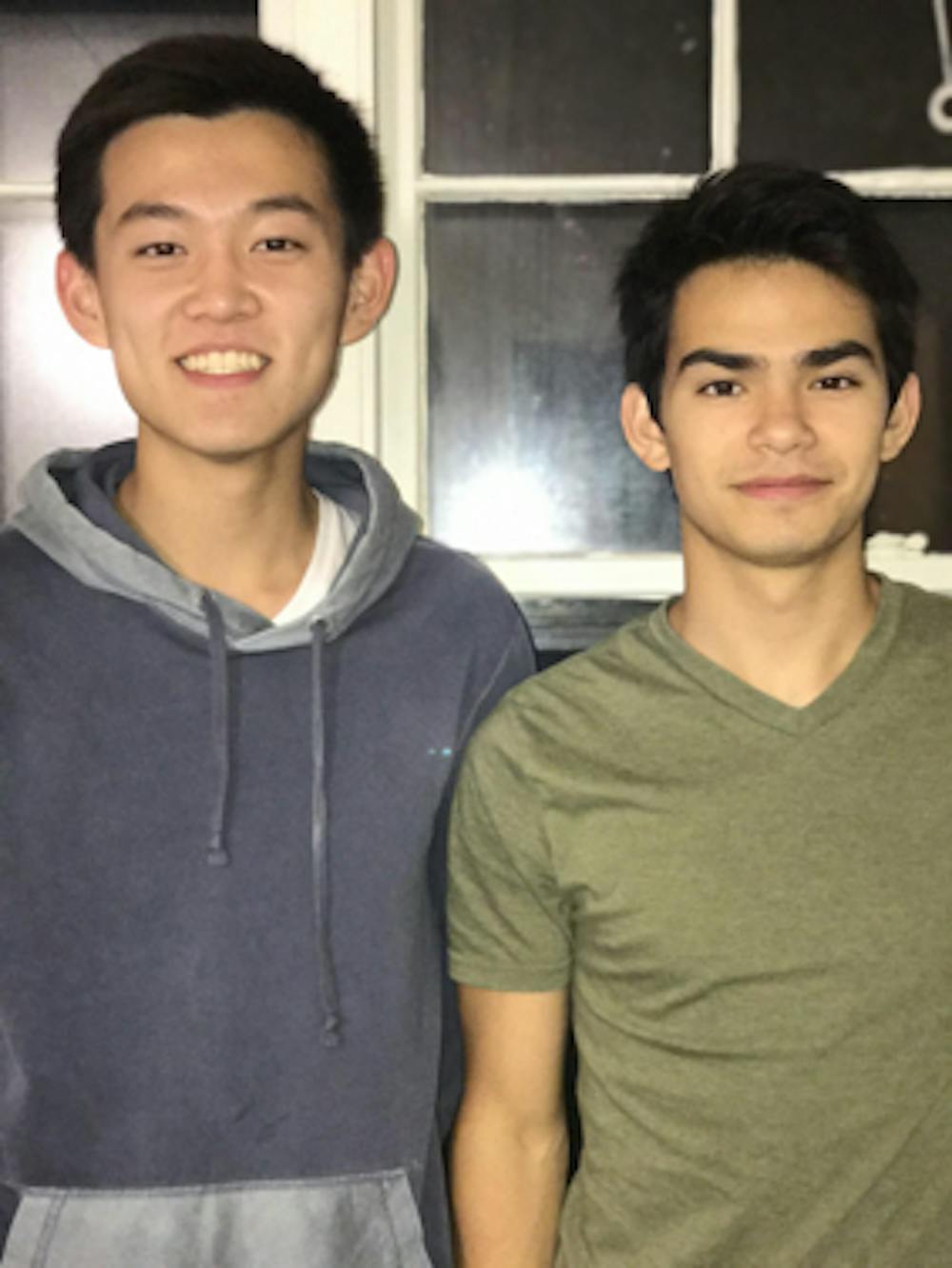
“Our goal is to have fun, to play awesome music, and to form friendships and bonds with other musicians. To make a pops family.” Dane Jacobson ’21 and Alex Zhu ’21
Dane Jacobson ’21 and Alex Zhu ’21, the co-founders of Princeton Pops, share a love for listening to and playing music that they hear in popular media. Although both of the co-founders are a part of the Princeton University Orchestra, they felt like they didn’t have an outlet where they could play fun and catchy music, they said. “It’s a symphony orchestra dedicated to playing non-classical music, like video game soundtracks, movie soundtracks, Broadway hits, anime themes, Disney music, and pop music,” Jacobson explained. “We have lots of classical ensembles but nothing that dives into the pops. It’s something different,” Zhu added. The goal of the group is to create a music scene that was more connected to the student body and to popular music styles. Both expressed wanting people who would not normally listen to classical music to come to the group’s concerts. Currently, the Pops orchestra meets once per week and the group has begun to play popular music theme songs. “Every time we start talking to members of the orchestra, they know these pieces inside out. It’s super great,” Jacobson said. “Plus the conductor knows everybody’s name and that never happens,” he added, laughing (Jacobson is the conductor of the orchestra). The Princeton Pops has 40 members, and Jacobson and Zhu said they hope to keep expanding their fun and musical family. “I’ve always wanted to play this type of music in the orchestra. Now that we are in an environment with a bunch of great musicians, we should pull them all together and make the kind of music that we want to,” Jacobson said. As this new Pops orchestra continues to practice and get better, it plans to having their first concert during the last week of November. “We are here to play and have fun!” Zhu said.
Coffee Club

“Coffee club is a great way to meet passionate people, drink free coffee and develop a new set of skills!” Alex Kaplan ’21
Do you ever wake up in the morning just to head over to Starbucks, Small World Coffee, or the ’Wa to grab yourself a really warm cup of coffee? Or do you have your own coffee brewer sitting in your room? Does the smell of coffee make you want to inhale as deeply as you can so the aroma fills up your senses? Coffee Club was started due to the passion that Alex Kaplan ’21 had for making coffee and sharing it with the people around him — and lots of students at the University ended up sharing the same enthusiasm for coffee. “We have had enormous interest in people coming to our events — usually about 300 students will interact with our tasting tables in Frist Campus Center. In addition, we have over 200 students on our email listserv and a group of over a dozen people that regularly engages in club tastings,” Kaplan wrote in an interview done over text. Throughout the year, Coffee Club holds tasting tables, and members of the club also have a chance to learn how to roast coffee and customize a roast to make it their own. “The purpose of Coffee Club is to spread the love and knowledge of specialty coffee around campus by creating a network of passionate and involved students. Our goal is to open a student-run coffee shop here on campus to facilitate this network and become economically sustainable,” Kaplan wrote. Coffee Club has big plans for the year ahead, and it’s willing to share its journey with students on campus. So if you’re ever looking to brew hot or cold coffee, the Coffee Club will always welcome you.







